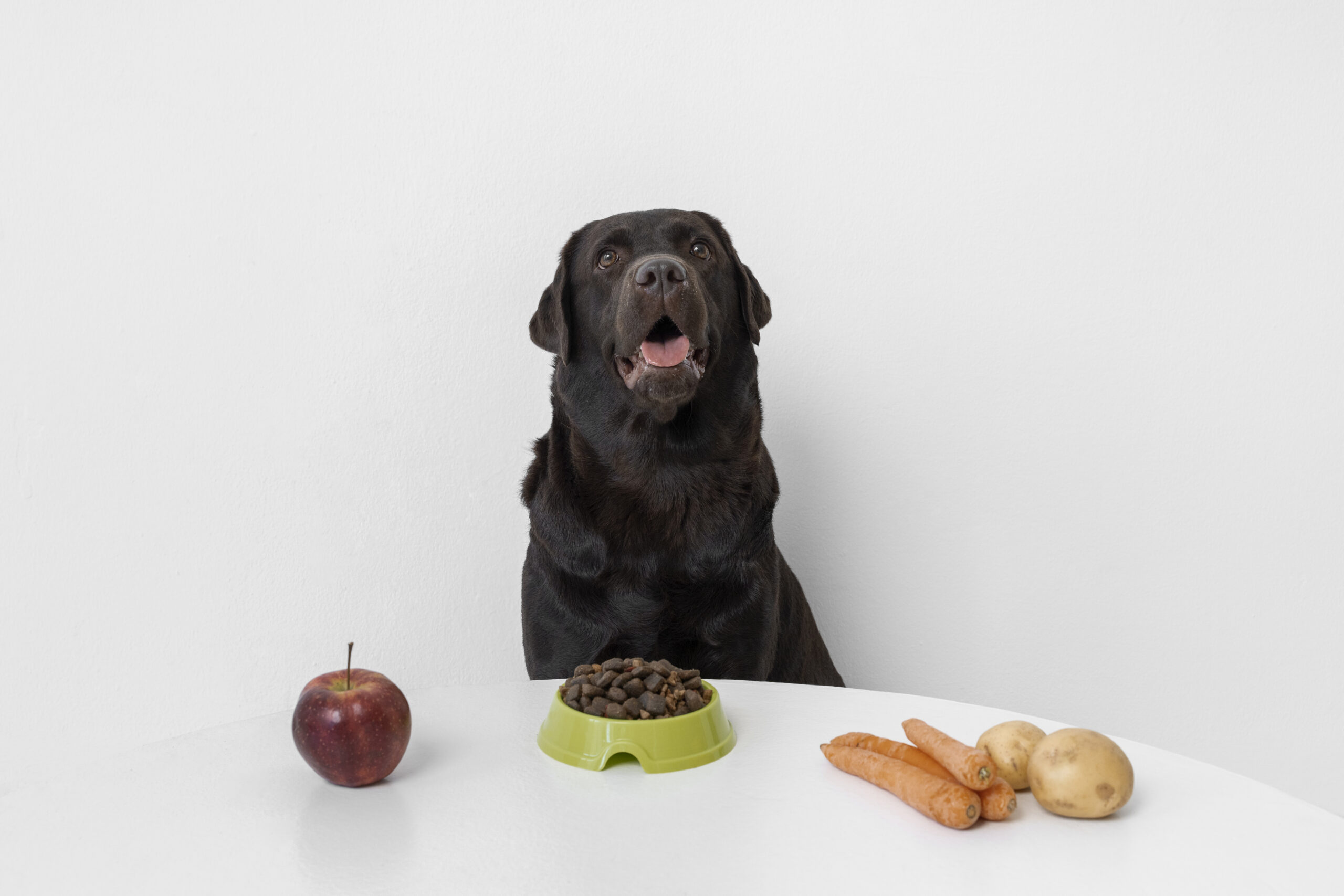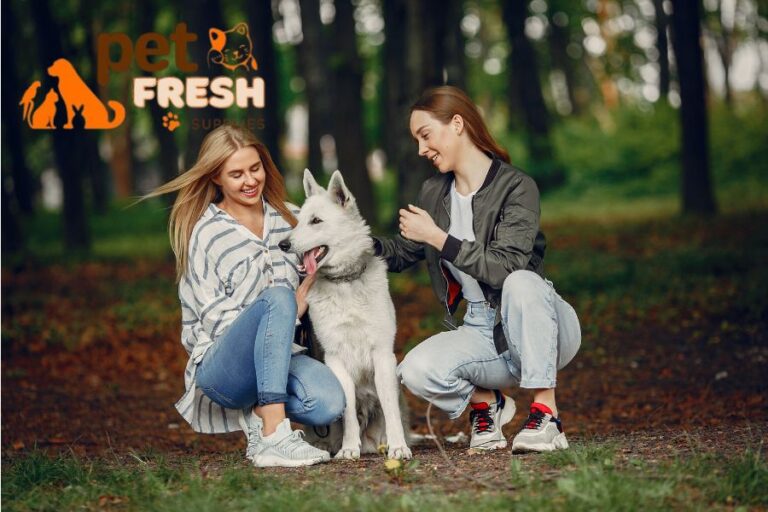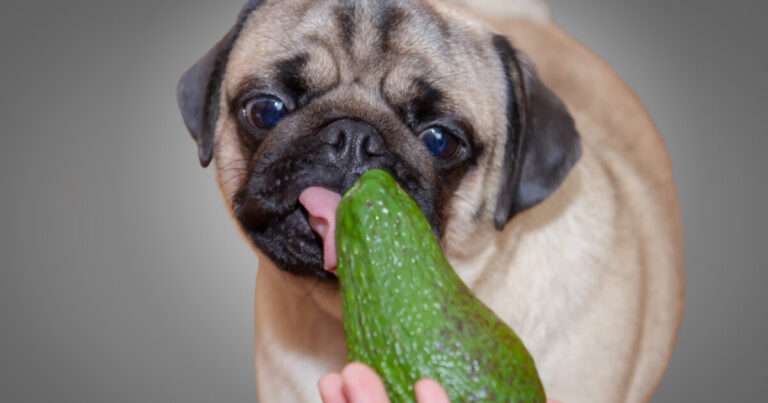Feeding Pets with Special Dietary Needs: The Essential Guide
As a responsible pet owner, one of the most important things that you should worry about is the health of your furry friend, and among them is keeping them well-nourished. Special care will be required to ensure that their health and well being is preserved by pets with special dietary needs. No matter how odd or peculiar the food sensitivities, allergy, and weight issues of your pet may be, he or she still has its special needs, its own diet to learn and respond to. The point of this article is to make you informed about feeding pets that have special food needs and offer you tips and professional advice on how to make sure that your pet will succeed.Pet Fresh Supplies aims to provide comprehensive information and guidance to the pet owners for their lovely pets
Why Do Pets Have Special Dietary Needs?

Like in human beings, pets also have varying nutritional needs depending on their age, breeds, health statuses, and level of activity among others. Some pets are also allergic or intolerant to some foods or other pets contain some underlying medical conditions like diabetes, kidney disease or obesity and, thus, require a particular diet.
Animals, in particular, the aged pets or those with special conditions require food that helps them to meet their special health needs. Older dogs, such as those, may require a lower-calorie and greater-fiber diet that would stimulate digestion.On the other hand, a pet that has developed arthritis would be subjected to a highly nutritionally omega-3 fatty acids diet because of the advantage of their effect in maintaining the health of the joint. You should be aware of the details of the needs of your pet in order to ensure you give your pet a diet that augers its health and comfort.
You can read more about dogs or your pets from our blogs.
How Can You Identify If Your Pet Has Special Dietary Needs?
Not every time it is easy to determine whether your pet needs a special diet, however, there are a number of symptoms to observe. When your pet is regularly trying out the foods of vomiting, diarrhea, or too much gas, it might be to signal an intolerance or allergy to food. Sensitive pets can also exhibit such symptoms such as skin itching, paw licking, or ear infection. When you realize such signs, then it would be prudent to see a veterinarian to establish the underlying cause and to know the most suitable diet the pet should be fed.
In addition to digestive issues, overweight or obese pets might need a special diet to make sure that they reduce weight gradually and effectively. Equally, pets that are extremely active e.g. working dogs or dogs in dog sports may require additional calories and protein to maintain their activities.
You may want to read about other Pet Care Guide
- Pet Family
- Dogs breed
- Cat Breed
- Exotic Pets
- Apartment Living?
- Pet Food Labels
- Pet Grooming Tips
- Pet to Healthy
- Apartment Living?
- Emergency Pet Care
- Small and Large Pets
- Best Pet Toys
- Pet care essential, Pillar Conten
What Should You Feed Your Pet with Special Dietary Needs?
After determining that your pet has special dietary requirements, there is the next step of searching the appropriate food. A commercial pet food may be required depending on the condition of your pet, specially formulated to address certain problems, including:
Hypoallergenic Diets: In case your pet is allergic or sensitive to food, you can feed your pet on hypoallergenic diets to minimize chances of allergic reaction occurring. They prepare these diets using few ingredients and in many cases, new sources of protein such as duck or venison that have less chances of causing allergies.
Prescription Diets: Your pet may need a prescription diet suggested to him or her by a veterinarian based on a medical condition, including kidney disease, diabetes, or digestive issues. These diets are designed to assist pets having concrete health needs and assist in the symptoms management.
Weight Management Diets: Obesity is one of the common problems to pets and it may cause other serious complications such as joint complications and heart diseases. Diets with special weight control can assist in your pet losing weight slowly but with necessary nutrients.
Joint Support Diets: Checking your pet has arthritis or joint-related problems? Omega-3 fatty acids, glucosamine, and chondroitin can be found in foods and offered to help and support your joints. There are even specialized foods that include ingredients that aid in keeping the cartilage healthy and to reduce inflammation.
Home Cooked or Raw Diets: Other pet owners would feed their pets special diets by preparing meal and feeding them raw diets.Although it may be helpful in other situations, it should be supplemented with a veterinarian or a pet nutritionist so that your pet is placed on a proper diet.
People are interested in knowing their dog’s good Pet Care Guide
Are Supplements Necessary for Pets with Special Dietary Needs?
Pets may be taken to advantage of extra supplements in most of the cases where they have special dietary needs.In one case pets with joint issues may be assisted with glucosamine supplements and pets with skin issues may be assisted with fatty acid supplements in order to maintain the coat and the skin in the appropriate state. Probiotics can also be given to pets with digestive issues as it assists them to sustain organisms in their gut as healthy.
How Can You Make Mealtime Enjoyable for Your Pet?
Pets might not necessarily have the time to feed them with special diets and this is even more difficult when pets are picky or they cannot adapt easily to new foods. To have a pleasant mealtime, the following may help:
Gradually Transition Foods: When you have to change the food of your pet because of your diet, you need to do it gradually, within a period of a week. It can be helpful to blend their old food with the new food and avoid digestive discomfort.
Boost the Taste: Does your pet seem to be reluctant about their special diet? Adding some low-sodium broth or wet food to their dry kibble will help them like it more.
Apply the Puzzle Feeders: When your pet is bored or stressed during meals, the puzzle feeders or interactive feeding toys would be used to stimulate his or her mind and make eating an interesting process.
You may want to read about Feeding Your Cat Right: How to Choose the Best Food
What Do Pet Experts Recommend?

Pet professionals and even famous veterinarians insist on the need to keep the diet of your pet specific to its health needs. Dr. According to Lisa Freeman, a board-certified veterinary nutritionist, one of the most significant elements of the management of special dietary needs of a pet is the collaboration with your veterinarian to develop an individual hygienic plan. Dr. Freeman states that no universal method of feeding pets exists and each pet is unique.
Likewise, the American Kennel Club (AKC) suggests that breeds such as but not limited to many food allergies are more susceptible to them and thus they should be provided with a proper diet.
FAQs
1. How can I tell if my pet has special dietary needs?
A scratch on the body of your pet may be one of the indicators that the animal in question has special dietary requirements when there is something wrong about the digestive system of your pet and when the latter has lost its weight abruptly or is otherwise displaying some unusual behavior.This is to be done with your veterinarian to diagnose and advise.
2. What should I feed my dog with food allergies?
Hypoallergenic diets or limited-ingredient diets are commonly the most appropriate choice in the event you have a dog with food allergies. They add new proteins and the low content of ingredients in such diets to prevent the risks of an allergic reaction.
3. Can I switch my pet’s food if they have special dietary needs?
Yes, but one should do it slowly. Any abrupt dietary transition can cause disturbance to the digestive system of your pet.And for a week, mix the old and new foods together to make them blend.
4. Are supplements necessary for pets with special dietary needs?
Supplements can be useful on pets with selective health problems such as joint problems or digestive problems. Nevertheless, you should never add supplements to the diet of your pet without consulting the veterinarian.
5. What is the best diet for a senior dog with arthritis?
The elderly arthritic dogs could have glucosamine and chondroitin and Omega-3 fatty acids in their diet. These are the elements that act as the reason to keep the joints healthy and the inflammation that may reduce the arthritis symptoms.
6. Can I prepare homemade food for my pet with special dietary needs?
Pets that have special diet can be fed homemade food though they should be consulted with a veterinarian or pet nutritionist to make sure that the diet will prove to be balanced in case of special demands.
7. How do I make sure my pet enjoys their special diet?
To make mealtime fun, ask them to slowly replace their food, add flavor food such as a low sodium broth, and interactive feeders to keep their minds occupied during meals.
Conclusion
Special pets are sensitive to nourishment and need patience, comprehension, and proper approach. It may be allergies, medical conditions, or weight-related concerns, but the difference between the health and well-being of your pet can be a great way to choose the food and supplements. Never forget to consult a veterinarian to make sure that you are feeding your furry friend the best possible diet, and that a specialized diet is the key to making your pet even happier and healthier.With the professional advice and knowledge of its unique needs, you can make sure that the best is provided to your pet and help them live its best life possible.







